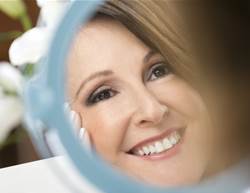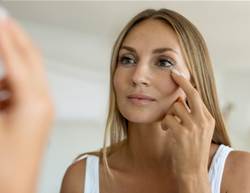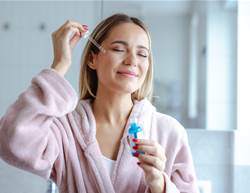Necks are a dead giveaway of one’s vintage, considering it’s a body part so often neglected (or should that be neck-lected)?
A 2018 UK survey discovered that while almost 20% of women believe the neck reaches “crisis point” at 40 (a bit dramatic, perhaps), 97% admitted they didn’t use a neck cream targeted to treat neck lines, wrinkles or sagging.
Why the neck ages so fast
“The neck and décolletage region [the skin from our collar to our nipples], as well as the hands, elbows and knees are reliable ‘tells’ pointing to the life that one has led,” says Melbourne dermatologist and Mohs surgeon Dr Adam Sheridan. “The skin is thin and vulnerable, and the relative lack of underlying fat means that any reduction in the quality of the skin [as with ageing] is evident for all to see.”
Add to that a lifetime of exposure to damaging environmental elements (wind, UV rays and pollution, to name a few), plus genetic factors, and it’s all you can do not to don a high-necked jumper for the rest of your life! If it’s an area you’re self-conscious about, the good news is that there may still be décolleté-exposing fashion in your future.
It all starts with you taking onboard the idea that looking after your neck and chest are every bit as important as looking after your face. When it comes to skincare, start at your forehead, and work your way down past your chin… way, way down. Your loving daily “facecare” regimen really ought to stop at your boobs.
Some good news
The beauty market is full of creams, masks and treatments designed to target this oft-neglected area of the body – and many of them can make a positive difference. It’s even possible to reverse established damage, Dr Sheridan says. As we age, among the most common concerns are crepey skin, reduced elasticity, visible capillaries and pigmentation. A number of products contain active ingredients that target skin renewal.
Meanwhile, dermatologists offer professional treatments, including radiofrequency, ultrasound and laser. “These aim to reinvigorate the skin’s natural self-renewal processes and encourage formation of new healthy collagen and skin cells,” Dr Sheridan says.
The takeaway? It’s never too late to start making a difference to your skin. And as for extending your “facecare” way beyond the chin? Trust us – your boobs will thank you for decades to come.
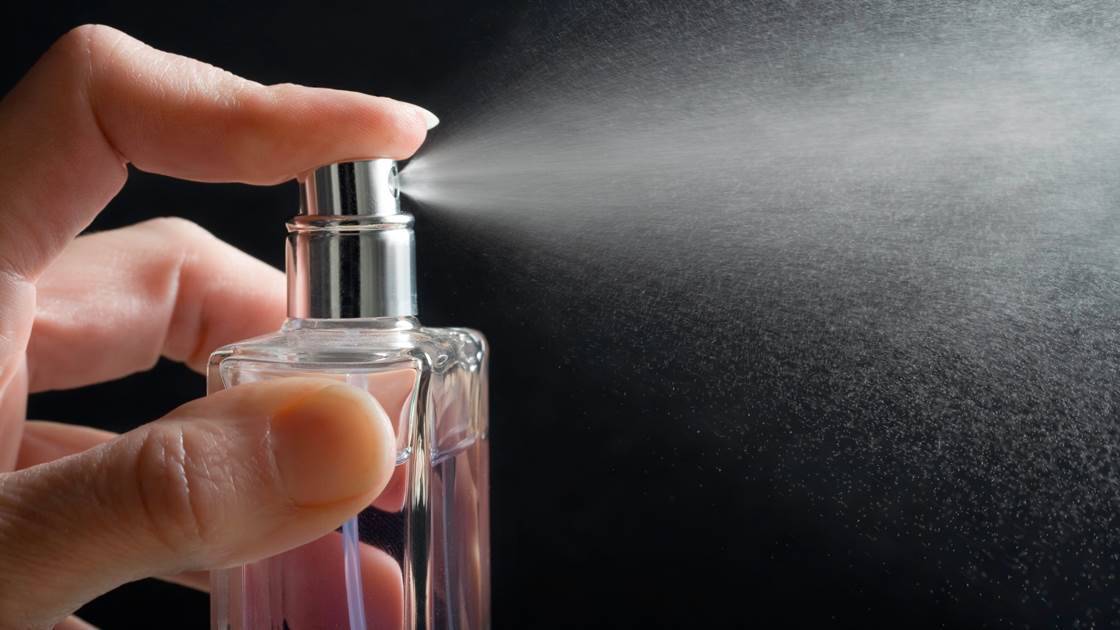
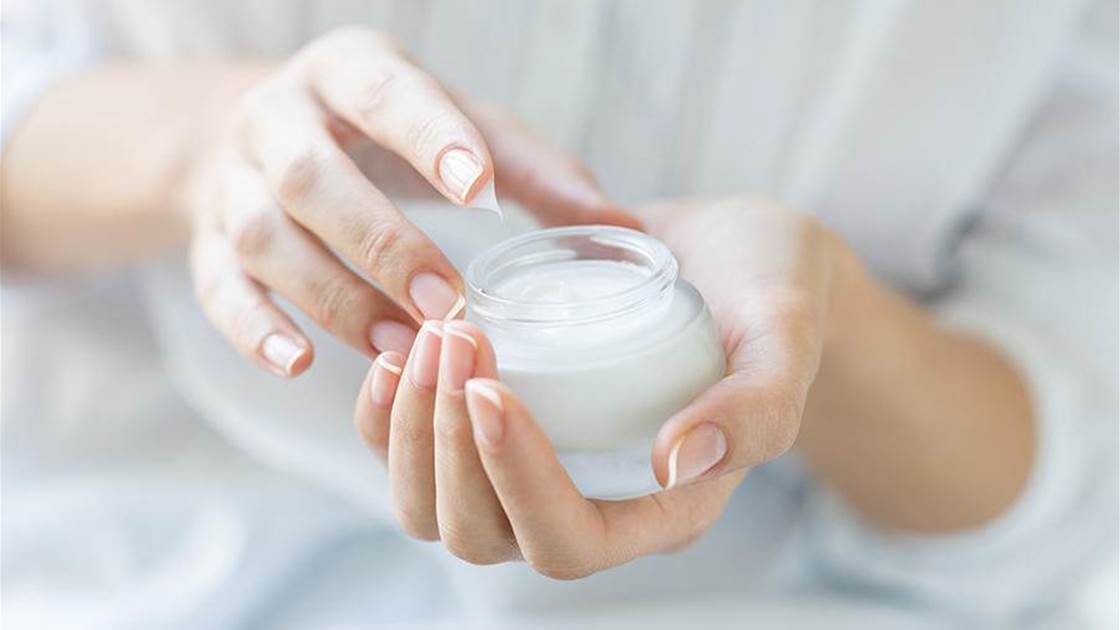
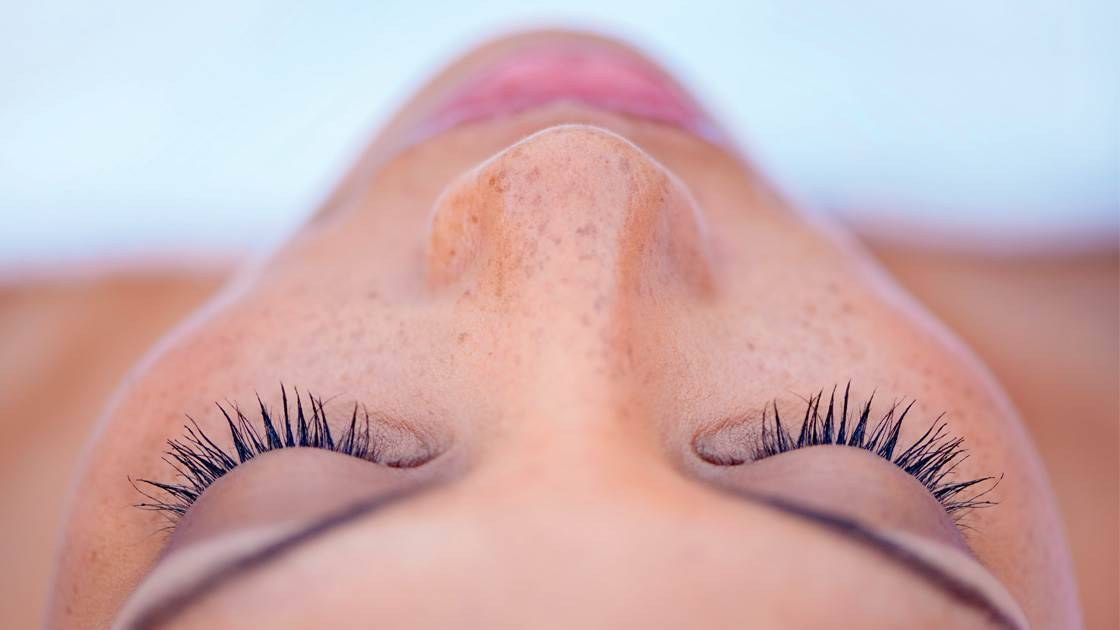
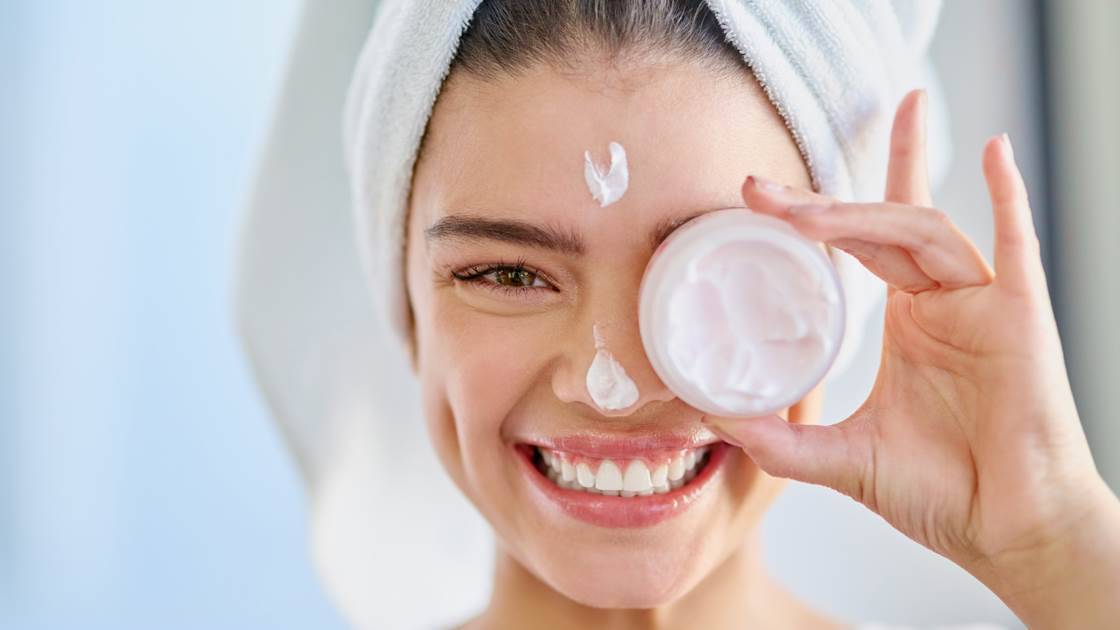

Redirect your perfume
“When spritzing fragrance, never spray it directly on your chest because perfume is a photo-sensitiser and will work with the sun to create more damage to the skin,” says cosmetic physician Dr Phoebe Jones. “And wear zinc-containing sunscreen on your chest every day. Even at work. Blue light from our devices still causes photoageing and pigmentation.”
Hydrate, day and night
“Use a moisturiser rich in ceramides,” advises dental and dermal expert, Dr Giulia D’Anna. “The neck and chest do not have many oil glands so are often dry. Rich moisturisers help keep the skin supple and well-conditioned.” Try CeraVe Moisturizing Cream (RRP $22.99, Chemist Warehouse).
Consult a trusted skin specialist
“For someone concerned with crepey skin and sun damage on their décolletage, I’d generally recommend Ulthera to tighten the skin [an ultrasound treatment that encourages new collagen and elastin] and then Fraxel laser to remove unwanted sun damage,” says plastic surgeon and skincare clinic owner, Dr Anh Nguyen. “Maintain the results with a good neck and décolletage cream and try sleeping on your back to avoid creasing in between the bust,” he continues.
Have a good skincare routine
“At night, I recommend using a vitamin A derivative of some kind, such as retinol, or prescription tretinoin if your skin can handle it,” Dr Jones advises. “This will speed up skin cell turnover and stimulate collagen production.”
Use sunscreen daily
“We often joke at our clinic that there
are far more smooth-skinned bottoms on earth than faces, necks and chests – despite the fact we sit on our bottoms daily,” Dr Sheridan says. “The reason? Less exposure to UV damage and pollutants. Protect yourself daily. And, of course, engage in a healthy lifestyle all round, as this best equips you to mend damage that may occur over your lifetime.”






